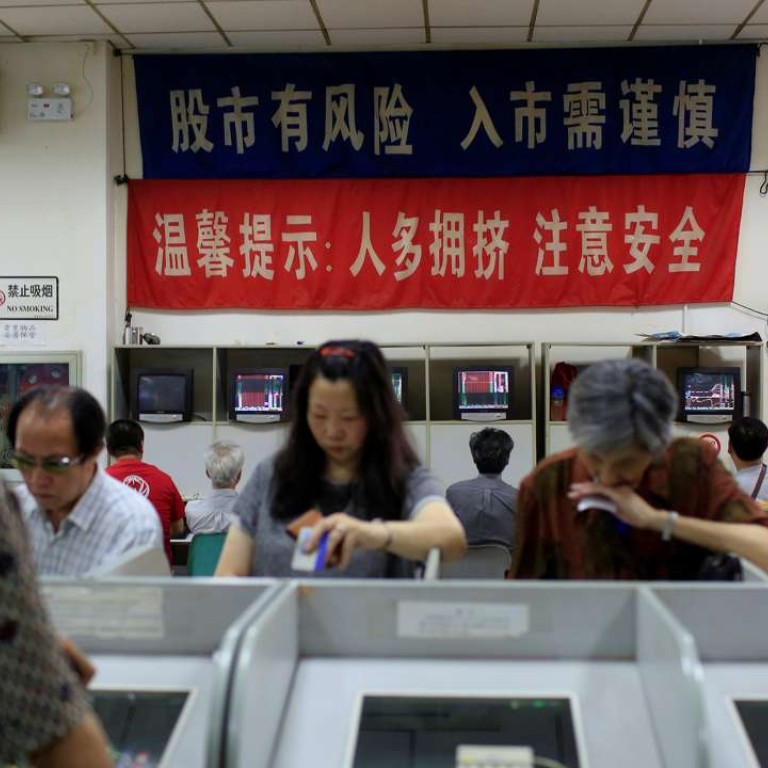
Shanghai’s stock exchange is little more than a casino
China’s biggest stock market has yet to get the balance right between industry and investors’ interests
Liu Shiyu, chairman of the China Securities Regulatory Commission, is expected to continue to take a hands-on approach in ensuring a stable bull market rather than a “crazy” one based on speculation and manipulation, analysts say.
SCMP, June 13
I draw your attention first to the words “stable bull market”. They certainly bespeak confidence for a stock market priced just now at little more than half its level of a year before.
Hope springs eternal in the breasts of investment analysts, they say. Having once been an analyst myself I can tell you why. There are not many jobs for analysts in a bear market.
But the excerpt I quote above was only a teaser on the front page of this newspaper. The full report in our business section offered a comment of greater insight. It came from Song Qinghui, a Beijing-based independent economist.
“The China stock market primarily serves financing, rather than investment. It has become a cash pool for companies to raise funds from retail investors when they need money,” he said.
Exactly.
I do not know of many stock markets that ever got it wrong by focusing too heavily on the welfare of the investors
No man can serve two masters, according to the Good Book, but it is not so in stock markets. They thrive on serving two masters, both the listed companies that seek a source of financing and the investors who provide that financing.
Get that balance right and the result is prosperity all round, barring the occasional shake-out of a bear market. Get it wrong and your economy is deprived of a fundamental support of prosperity.
I do not know of many stock markets that ever got it wrong by focusing too heavily on the welfare of the investors. Securities commissions around the world are always busy trying it, of course, but, fortunately, without much success as their way of doing it would bring share trading to a grinding halt in a morass of rules, regulations and restrictions.

More common is getting it wrong by focusing exclusively on the interests of listed companies, and this is where things have gone wrong in the mainland markets.
The reason that stock markets work at all is trust. Just that, trust. The companies in which you put your money owe you a duty of care with your money. They have to recognise it and you have to believe that they do. If not, all you have is a casino.
It is actually worse than a casino because in a casino no-one disputes the cards that come up and all bets are paid off. In a stock market established to raise money and take no further thought for it except insofar as this may affect raising more money later, no investor can really trust what he or she is told.
Investing then becomes purely a gamble, an exercise in cynicism, on the greater fool theory that greater fools than you exist and thus you can perhaps wait a little longer before cashing in. The result is that, rather than a stable market, you get the “crazy” one based on speculation and manipulation.
The Shanghai stock market, I’m afraid, still has the hallmarks of just this sort of market. It is too heavily pushed around by people who recognise no trust in how they handle the money entrusted to them.
And one big reason for this is that Beijing also does not really recognise this duty of trust. It sees stock markets as a way of raising capital to boost economic growth and that is all it sees.
Thus I don’t think it means much when Mr Liu, who assumed his job at the CSRC only in February in the aftermath of the burst bubble in the Shanghai market, says he will be tougher on market misdeeds.
The job of the CSRC is first and foremost to promote social financing of industry. If this is temporarily impaired by companies that have too rapacious an understanding of what it means, then some attention must be paid to restraining their worst excesses.
But this only counts for as long as the market’s assigned task of raising money from the public is obviously hindered. Things soon return to normal and the game of bilking the public is soon resumed.
Shanghai is still a few crashes away from having a real stock market.

